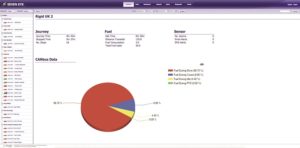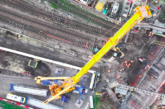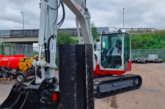
Michael Kane, Sales Director, Seven Telematics offers some advice on how to choose a telematics provider.
Gone are the days when vehicle tracking and telematics services were unique and only the most profitable businesses could afford them.
These days, there are a plethora of suppliers selling telematics and vehicle tracking services, all of which pretty much claim to do the same thing. So today, a fleet manager needs to consider what capabilities are really important when weighing up the pros and cons of different telematics suppliers.
Before starting this task, it’s most important to define the overall requirements with so many products and options on the market, as it is difficult to find a complete solution for individual needs unless you know exactly what you want to achieve. Agree very clear project milestones and always conduct a trial exercise before committing.
Contract Length
Don’t commit for longer than necessary and always try before you buy. Ask yourself why companies try to lock you in to long contracts before proving their worth.
Providers with proven offerings don’t worry about commitment because the quality of their product and service ensures customer retention. Reputable telematics companies should surely be happy to offer a trial of their service before expecting commitment.
Track Record
Unfortunately the telematics industry has seen many companies come and go, so it’s wise to choose a supplier that can prove longevity.
It is essential that a potential telematics supplier has credibility, knowledge, experience and proven history in, and of, the industry. Conduct due diligence on a potential supplier, run a credit check on their business, check testimonials and try to talk to existing customers to see if they’re happy.
 Ease of Use
Ease of Use
It is all very well having amazing functionality in fleet tracking, but if you and your workers cannot use it effectively, then it becomes worthless.
If it’s hard to use, your team isn’t going to adopt the product into their daily routine, and the savings you’ve imagined won’t be achieved. So many fleet managers are impressed by the prospect of cost reductions from implementing a fleet tracking system only to find savings are too difficult to achieve with a poor user interface.
Once that happens, all the savings go away, and they find themselves in a contract, stuck paying for a product they don’t use. A good provider will be confident in demonstrating ease of functionality up front.
Reporting & Alerting Capabilities
The key to success is to effectively convert the telematics data into useful meaningful management insight/business intelligence and then act upon this information to drive business improvements and best practice.
Telematics solutions are collecting largely the same data, however the way in which it is captured, summarised & displayed is crucial to maximising the delivery of benefits, ultimately to the bottom line.
Systems must be able to present users with scheduled KPI reports (on vehicle utilisation, driver performance, etc.) and also have the ability to let users interrogate data to an individual data point on demand. The ability to create customised reports is also essential, not all customers, routes and products are the same.
Despite the high level of information telematics technology delivers, fleet managers don’t always have the time or resources to read the thousands of lines of data collected daily.
The use of alerts and exception reporting that can be pushed to drivers, supervisors or managers, via email and text messaging, facilitates faster adoption of best practice.
Customer Service/After Sales Support
Find out what level of support will you receive post sale. Look past the glossy brochure and expensive animations and, most importantly, get to know who will be looking after your day to day support. These are the people who will ensure you get the service you are looking for.
 In order to get the absolute best return on investment, fleet managers should know how to get the most out of their system. Training needs to be continuous as all businesses are different, one company may be focused on fuel saving, with another purely focused on time.
In order to get the absolute best return on investment, fleet managers should know how to get the most out of their system. Training needs to be continuous as all businesses are different, one company may be focused on fuel saving, with another purely focused on time.
Most telematics packages have expensive training, it is worth choosing a good telematics provider who is confident in customer retention and will deliver this at little or no cost.
Conclusion
As in many markets there seems to be a price war going on amongst suppliers in this area, all vying to offer the cheapest price possible. But in a long-term relationship, it’s not all about price, it’s about the quality and application of the solution.
Anyone can buy a cheap black box from China, throw in some integrated software and sell it on to some unsuspecting prospect, who thinks they have found a great deal from a company offering a quality telematics service for next to nothing; only to find out the system doesn’t do half of what it’s supposed to and they have no support.
This sort of mis-selling gives the industry a bad name and wastes time, energy and money for your company.
Telematics solutions are in fact complex and, in order to perform efficiently, should be built around quality hardware and well developed software, all supported by an organisation with sustainability.
It is clear that there is a lot to consider when choosing a telematics provider. The most important factor above all is to be clear on what you require from a system before you go shopping.
Only then can you choose a system that will ultimately meet your expectations. Choose a telematics provider with experience of delivering profit, not just savings.
For further information on Seven Telematics click here.








